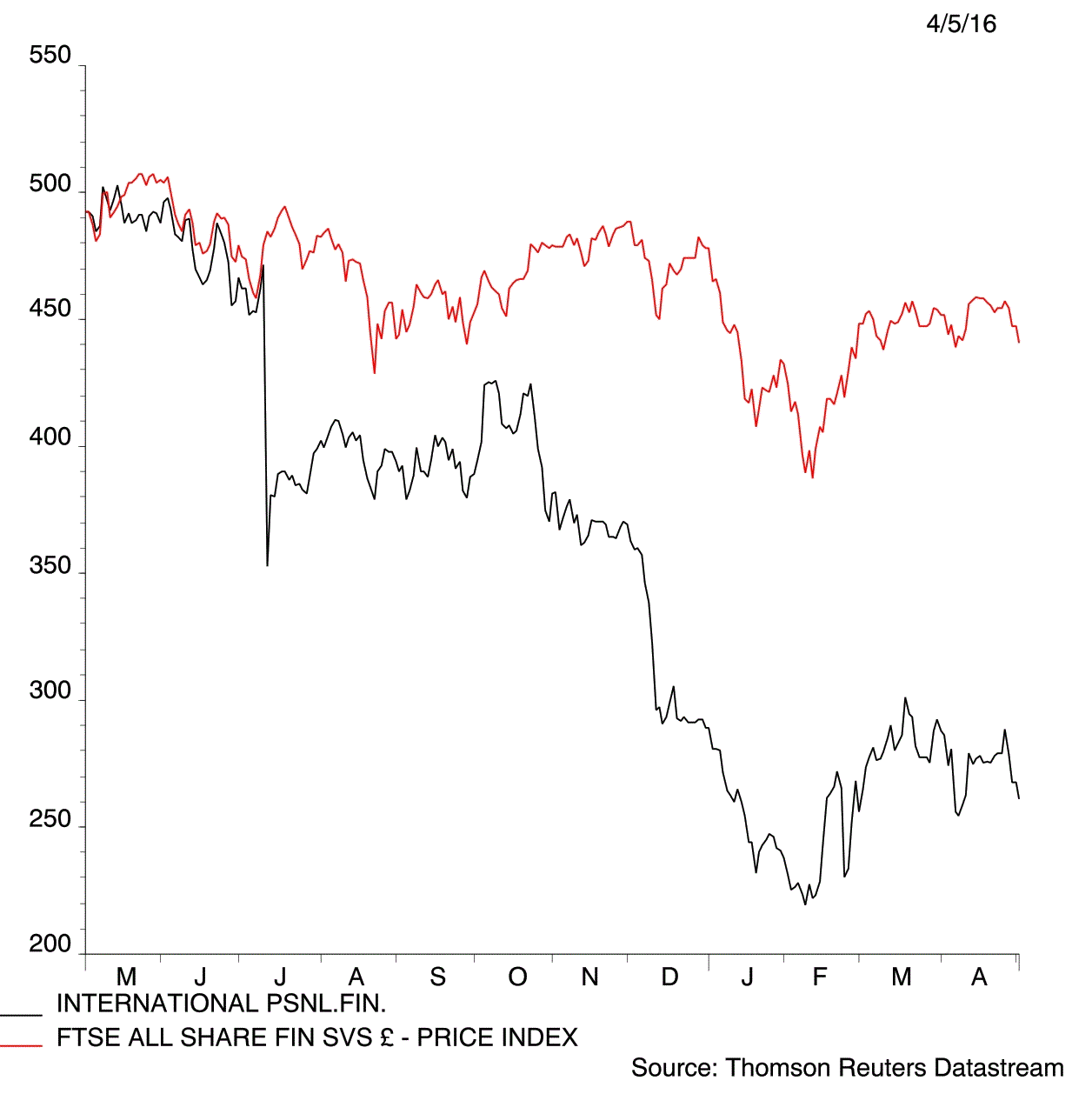
Consumer lender International Personal Finance (IPF) sinks 8.4% to 239p as poor performance in Mexico and higher impairments add to regulatory woes in Poland and Slovakia.
IPF is closing its Slovakian business and 'actively monitoring' developments in Poland, one of its largest markets, says chief executive Gerard Ryan in a first quarter trading statement.
And Mexico, a key growth market for IPF, delivered a weak performance in the first quarter of 2016 - piling further pressure on the shares, which are down 52% in the past year.
Credit issued in the country increased 4% in the first quarter of 2016, down from last year's full year result of 8.1%. Impairments, which represent expected loan repayments which are in arrears or default, also increased in the country, pushing IPF's overall impairment charge to 25.9% of revenue, up from 25.6% in the final quarter of 2015.
'In order to support longer-term growth in Mexico, we commenced our geographic expansion programme to open around 10 new branches in 2016, and have opened three in the year to date,' says a trading statement.
'The growth of credit issued in Mexico of 4% during the quarter was slower than expected. The factors driving this are largely operational and we have a clear plan to address these and return to higher rates of growth as we move through the year.'
Earnings forecasts may be revised down following today's trading statement, though analysts at Numis have previously argued investors may be overestimating the impact of regulatory change on IPF's business.
Forecasts prepared prior to today's update indicate IPF will grow earnings per share (EPS) 8% across 2016 and 2017 despite changes in Slovakia and Poland.
'The vast majority of regulatory change has had little or no effect on the economics of the IPF business,' writes Numis analyst James Hamilton.
'Following the Q3 IMS we now know the negative impact on Poland is likely to be 28-49% (we forecast 39%) of Polish profit.
'Despite this flowing through 2016 and 2017 we forecast group EPS will increase 8.3% in this period.
'While regulation is likely to consistently remain a feature for IPF we believe that much has been driven post crisis and that the volume of new regulation is likely to slow.
'We also believe that regulation that has a significant negative impact is very much the exception.'
Hamilton also points out IPF delivered EPS growth of 20% a year in the eight years to the end of 2014 yet trades on a price-to-earnings ratio of around 8 times earnings.





